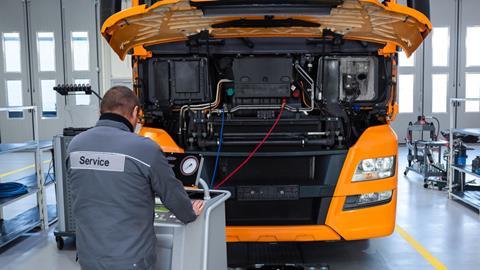The government is unconvinced that earned recognition (ER) operators should be exempt from having their vehicles tested every 12 months, after it asked the industry for feedback.
The department for transport (DfT) has been exploring ways in which members of the ER scheme might enjoy more flexibility in their operations as a result of demonstrating high standards.
It proposed four options, including removing the requirement for ER firms to have their vehicles tested every 12 months, allowing these companies to test their own vehicles, or streamlining test content by removing items that are covered in routine inspections.
It also suggested giving ER operators guarantees of authorised test facility slots.
However, the DfT said more work was required to calculate the risks involved in these moves.
It said that although there had been “moderate” support for altering the testing frequency, it was based on a limited number of responses from businesses and evidence to support the possible benefits.
The DfT said: “It is our view that a change to the frequency of vehicle testing could increase road safety risks if not supervised properly and without adequate safeguards.
“Under option two [self-testing] there would be delegated tests every year. Unlike option 1, this would maintain the volume of data fed into ER, but it would mean that it is not under the control of the DVSA and may not be independent from the maintenance.
“We also note that for many ER operators, there would only be a benefit of this option if ‘sub-delegation’ of testing by ER operators to third parties was possible. In which case responsibility for the quality of testing would be further complicated.”
Referring to these two options, the DfT added: “Some comments within the call for evidence pointed out that some of the benefits of these options could be to reduce down time for vehicle preparation for test. This is a concern because the vehicle should meet, at least, that minimum standard all of the time.”
The Institute of the Motor Industry (IMI) said the DfT’s response was more of a presentation of findings rather than a full conclusion:
“The IMI made a full and informed submission to the original consultation and we will continue to work hard on behalf of those in the heavy duty vehicle sector to ensure that the experience of professionals is properly accounted for,” said Hayley Pells, IMI policy lead.
“Investment in skills development is critical to maintain the integrity of this vital component of the automotive sector; without properly maintained heavy goods on UK roads our economic infrastructure is under serious threat.”
Pells added: “The DfT’s proposals seem to suggest that reduced testing for those part of the ER scheme is likely.”














![Tachograph Manager image[70076]](https://d2cohhpa0jt4tw.cloudfront.net/Pictures/100x67/7/1/5/16715_tachographmanagerimage70076_523138.jpg)